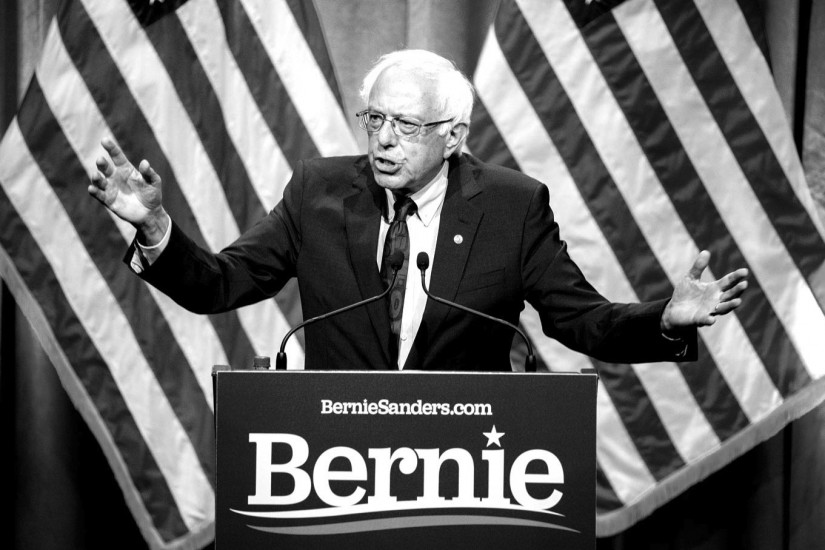Let’s be clear: Bernie Sanders’s heresy, what sets him apart from every Democrat running to unseat Donald Trump, is not simply that he calls himself a socialist in a country long proudly identified as capitalist. Those two labels, socialist and capitalist, are open to too many interpretations and represent too many historical examples (everything from Norway to the United States, Stalin’s Soviet Union to Hitler’s Nazi Germany) to pin down. Rather, a more precise way to define the historic nature of Sanders’s campaign would be to focus on his promotion of social or economic rights and how they relate to the individual or political rights found in the US Constitution.
Sanders, by waging practically a one-person crusade to legitimize social rights, is striking at the core cultural belief that holds the modern conservative movement together: an individual-rights absolutism that has, today, little to do with economics or political philosophy but rather forms the essential, cultish element of right-wing identity politics.
First, some definitions: Individual or political rights are aimed at restraining government power. They presume that virtue is rooted in the individual and that the public good, or general welfare, of a society stems from allowing individuals to pursue their interests—to possess, to assemble, to believe, to speak, and so on—to the greatest degree possible. A legitimate state is a state that restrains itself, that limits its role to protecting the realm in which individuals pursue their rights. Economic or social rights presume that in a complex, industrial society, with its imbalances of power and often extreme concentrations of wealth, the state has a much more active role to play in nurturing virtue through the redistribution of wealth in the form of education, health, child care, pensions, housing, and other common needs.
Sanders made the distinction between these two sets of rights the centerpiece of his historic June 12 speech at George Washington University, in which he defended democratic socialism as the country’s only possible redemption, not just from Trump but also from the rotten system that produced Trumpism. Calling for a 21st-century bill of economic rights, one modeled on Franklin Roosevelt’s 1944 proposal for a Second Bill of Rights, Sanders said, “We are proud that our Constitution guarantees freedom,” but now “we must take the next step forward and guarantee every man, woman, and child in our country basic economic rights—the right to quality health care, the right to as much education as one needs to succeed in our society, the right to a good job that pays a living wage, the right to affordable housing, the right to a secure retirement, and the right to live in a clean environment.”
